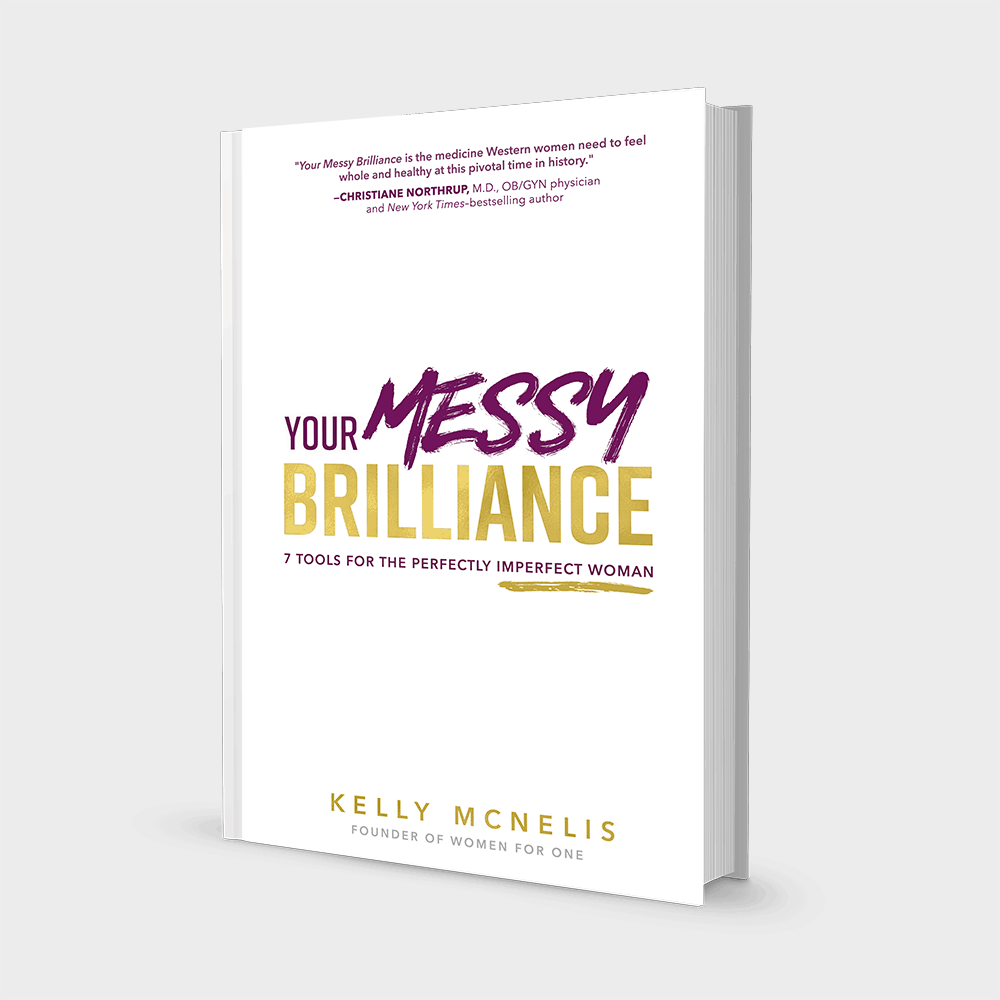
True Talk: Be a Writer…Even When You Don’t Think You’re One
In light of the global COVID-19 pandemic, we are extending a special gift to the Women For One tribe: We’re offering our Truthteller™ course at a drastically reduced cost. Through June 2020, every member of our community will receive a 60% discount on this signature course. Please be sure to take advantage of this opportunity to go inward and tap into your authentic power. Sign up for the course here—and you’ll also receive a complimentary 45-minute Clarity Call with Wf1 Founder Kelly McNelis—a $149 value.
Hi Truthtellers! In the past month or so, we’ve received an Influx of emails from people who would love to submit their stories to us…but the problem is, they aren’t “writers.” That is, according to them, they want to write—and maybe they even used to write copiously when they were younger—but over time, their confidence has waned and they don’t even know how to approach sitting down with pen to paper or fingers to keyboard.
“I used to love writing,” one of our community members emailed us. “But I just don’t do it anymore and I wouldn’t know where to start.”
My main advice is to start simple. You must also rid yourself of the idea that you need to be a professional writer in order to share your words of wisdom with the world. Sure, you can string a bunch of words together to construct a pretty sentence or formidable paragraph, but that isn’t what writing is ultimately about. It’s about communicating ideas, thoughts, feelings, and impressions in such a way that your words become portals into another person’s heart and mind.
Believe me, as someone who writes thousands of words on a daily basis, there is no easy formula. I definitely end up procrastinating, drawing a blank, and feeling intimidated by the blank canvas of screen before me. Sometimes I even tell myself that “I just don’t have enough time,” which I’ve learned by now is an excuse that is compelled by fear…usually, the fear of not getting it right.
As I’ve worked with Women For One over the years, I’ve discovered that letting go of perfection is a must when it comes to unlocking the full force of my creativity. There are three different facets to this kind of creative surrender: curiosity, trust, and devotion.
Curiosity is all the questions I bring to my writing process. What captured my attention today? What am I feeling uncertain about? What is the journey I am on? How do my personal experiences entwine with whatever it is I’m seeking to explore here? More than anything, writing that is an active exploration rather than a predetermined destination (where I know exactly what I’m going to say) is writing that opens me up to my fullest potential. This is why I encourage you to let the questions that are most pressing in your life lead your creative process.
Trust is the simple act of accepting yourself and your words, exactly as they are. By no means do I hit it out of the ballpark every time I attempt to translate the tangled web of my thoughts into coherent sentences. But the more open I am to my process, and the more I release from the grip of perfectionism, the more authentic my words actually are. A big part of trust is giving ourselves an uncensored space for self-expression. Remember, the editorial process should always take place after you finish writing, not during!
Devotion is my preferred substitute for discipline. I don’t like the connotations of discipline, which make me think of handcuffing myself to my desk and squeezing blood out of a stone with respect to my creative process. Instead, I like to treat the art and craft of writing as a devotional practice that can only be honed over time. Even on the days when I don’t want to show up, I give myself at least 15 minutes to write. Not because I’m interested in “producing” something brilliant, but because I know that my practice is a symbol of devotion to myself, my creativity, and my relationship with the Divine Muse.
In terms of putting all of the above into action, here are some simple tips for developing your own writing practice:
1. Keep a daily journal. Even if you write for just five minutes a day, let this be a springboard for your creative practice. Plenty of great writers have referred to their journals and mined the wisdom therein for stories, essays, and novels. Personally, I love to write about interesting dreams that I can recollect from the previous night, first thing in the morning. It’s wonderful fodder for creativity and also helps me to understand my inner landscape. You can also do something like the Morning Pages, a practice of unedited stream-of-consciousness writing that was developed by author and creative coach Julia Cameron. If you prefer specific prompts, check out this document, which will give you a thought-provoking daily question or theme to respond to throughout the year.
2. Figure out what you like to write. Some people express themselves best in poetry, others in essays, others in social-media posts. Choose your preferred genre, and give yourself a challenge to write something every day for a week. If you’re curious about moving beyond your comfort zone, try out a genre that you don’t have as much familiarity with.
3. Take Truthteller: A Course for Boldly Claiming Your Story. This is Women For One’s signature online program, which we developed as a tool for self-exploration and for becoming a more compelling storyteller. Aside from offering tons of writing prompts and exercises that will take you on a deep journey into the core of YOU, the course is specifically for people who don’t consider themselves writers. In fact, my co-creator and Wf1 Founder, Kelly McNelis, was very intentional about this. After all, she had never considered herself a writer; she just knew that she needed to birth her ideas into the world and to share her thoughts with a wider community. So the endeavor of writing wasn’t about being “perfect”—it was about doing what Kelly refers to as diving into the mess of it all, because the mess is precisely where we discover our brilliance. In six self-paced modules, you’ll have more than enough inspiration to get messy and connect with your personal muse.
Making time for your writing practice is an act of deep self-care. It’s how people who don’t see themselves as writers become writers. Most of all, it’s a gradual process. Let yourself ease into it, and over time, you will discover that you have so much to say—and just the words to say it!
Have any pressing questions on writing, editing, and what it means to be a Women For One Truthteller? Email nirmala@womenforone.com and let her know!









0 comments to "True Talk: Be a Writer…Even When You Don’t Think You’re One"